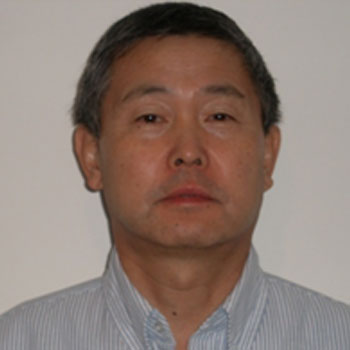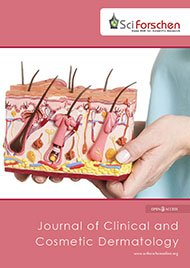
Research Associate Professor of Dermatology
University of Michigan Medical School
USA
Education
1997- 1998 |
Senior Research Fellow, Dept of Dermatology, University of Michigan |
1995- 1997 |
Research Fellow, Dept of Dermatology, University of Michigan |
1992- 1995 |
Research Associate, Center for Molecular Medicine and Genetics, Wayne State University |
1991- 1992 |
Postdoctoral Fellow, Akita University School of Medicine, Akita, Japan |
1987- 1991 |
Akita University School of Medicine, Akita, Japan, Ph. D |
1986- 1987 |
Visiting Fellowship, Akita University School of Medicine, Akita, Japan |
1978-1983 |
Norman Bethune University Medical Science, Changchun, China, M.D |
Profile
Taihao Quan is a Research Associate Professor in the Department of Dermatology at the University of Michigan in Ann Arbor. He obtained his PhD from Akita University School of Medicine, Akita, Japan (1992) and MD degree from Norman Bethune University Medical Science, Chang Chun, China (1983). Dr Quan received his postdoctoral training at Wayne State University and University of Michigan in the Department of Dermatology (1997).
Research in Dr. Quan’s laboratory studies the molecular mechanisms of skin aging and age-related diseases focusing on three major areas: matrix biology, cell-matrix interaction, and tumor microenvironment and skin cancer. His current efforts are focused on age-associated dermal microenvironment (AADM) impairs skin structure/function and creates a tissue microenvironment that promotes age-related skin diseases, like poor wound healing and development of skin cancer.
Dr. Quan has published more than 40 peer-reviewed papers, review articles, and book chapters. He is Editorial board member of more than seven scientific journals.
Research Interest
- Molecular mechanisms of skin aging
- Age-related diseases
- Age-associated dermal microenvironment (AADM)
Professional Activities:
Teaching Experience:
2008- Present |
Research Associate Professor, Dept of Dermatology, University of Michigan |
2003- 2007 |
Research Assistant Professor, Dept of Dermatology, University of Michigan |
1998- 2003 |
Research Investigator, Dept of Dermatology, University of Michigan |
Professional Activities:
1998- Present |
Society for Investigative Dermatology |
1995- Present |
American Association for the Advancement of Science |
2014- Present |
American Society for Matrix Biology |
Honors and Awards
Present |
National Institute on Aging |
Past |
National Institute of Environmental Health Science |
Publications
- Takizawa Y, Quan T, Hirasawa F: Hemolytic Resistance for Rabbit Red Cells of Saponin in Ginseng Cultured Tissues. Akita J Med 14:303-306, 1987.
- Hachiya N, Quan T, Takizawa Y: Mutagen Absorption Effects of a Dietary Fiber: Difference Between in vitro and in vivo Situations. Environ Mut Res 11:59-65, 1989.
- Hachiya N, Aruga F, Aida M, Quan T, Takizawa Y: Micronucleus Induction in Mouse Bone Marrow by Phenacetin Administration Intraperitoneally or Orally. Mutation Res 223:365-368, 1989.
- Quan T: Effects of Colon Carcinogens and Modification Factors on Rat Colon Mucosal DNA. Akita J Med, 17:877-893, 1990.
- Quan T, Hachiya N, Aida M, Takizawa Y: Induction of Unscheduled DNA Synthesis (UDS) in Rat Colon Mucosa. Akita J Med, 17:283-288, 1990. States JC, Quan T, Hines RN, Novak RF, Runge-Morris R: Expression of Human Cytochrome P450 1A1 in DNA Repair Deficient and Proficient Fibroblasts Stablely Transformed with an Inducible Expression Vector. Carcinogenesis 14(8):1643-1649, 1993.
- Quan T, Reiners JJ, Alonzo OB, Hong N, States JC: Cytotoxicity and Genotoxicity of (±) Benzo(a)pyrene-trans-7,8-dihydrodiol in CYP1A1-Expressing Human Fibroblasts Quantitatively Correlate with CYP1A1 Expression Level. Carcinogenesis, 15(9):1827-1832, 1994. Quan T, Reiners JJ, Sandra JC, Patricia R, States JC: Differential Mutagenicity and Cytotoxicity of (±) Benzo(a)pyrene-trans-7,8-dihydrodiol and (±) anti Benzo(a)pyrene-trans-7,8-dihydrodiol-9,10-epoxide in Genetically Engineered Human Fibroblasts. Molecular Carcinogenesis 12:91-102, 1994.
- Quan T, States JC: Preferential DNA Damage in the p53 Gene by Benzo(a)pyrene Metabolites in CYP1A1-Expressing Xeroderma Pigmentosum Group A Cells. Molecular Carcinogenesis 16:32-43, 1996.
- Quan T, Fisher GJ: Cloning and Characterization of the Human Protein Kinase C η Promoter. J Biol Chem 274:28566-28574, 1999.
- Fisher GJ, Datta S, Wang Z, Li XY, Quan T, Chung JH, Kang S, and Voorhees JJ: c-Jun-Dependent Inhibition of Cutaneous Procollagen Transcription Following Ultraviolet Irradiation is Reversed by All-trans Retinoic Acid. J Clin Invest 106(5):663-670, 2000.
- Quan T, He TY, Voorhees JJ, Fisher GJ: Ultraviolet Irradiation Blocks Cellular Responses to Transforming Growth Factor-ß by Down-Regulation of its Type-II Receptor and Inducing Smad7. J Biol Chem 276:26349-26356, 2001.
- Quan T, He T, Kang S, Voorhees JJ, Fisher GJ: Connective Tissue Growth Factor (CTGF): Expression in Human Skin in vivo and Inhibition by Ultraviolet Irradiation. J Invest Dermatol 118:402-408, 2002.
- Quan T, He TY, Kang S, Voorhees JJ, Fisher GJ: Ultraviolet Irradiation Alters Transforming Growth Factor-β/Smad Pathway in Human Skin in vivo. J Invest Dermatol 119:499-506, 2002.
- Wang HQ, Quan T, He TY, Franke TF, Voorhees JJ, Fisher GJ: Epidermal Growth Factor Receptor-dependent, NF-B-independent Activation of the Phosphatidylinositol 3-Kinase/Akt Pathway Inhibits Ultraviolet Irradiation-induced Caspases-3,-8, and -9 in Human Keratinocytes. J. Biol Chem 278, 45737-45745, 2003.

